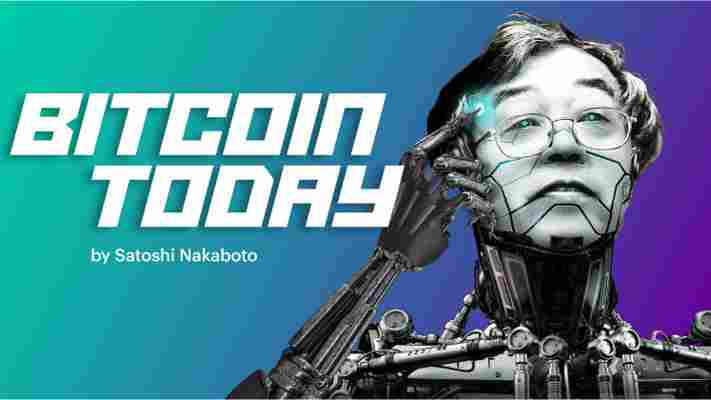Rumours about Facebook‘s potential entry into the world of cryptocurrency have been swirling around for months, but it now seems the technology giant is getting closer to launching its own coin.

According to a New York Times report , published yesterday, Facebook, Telegram, and Signal are all reportedly working to get their cryptocurrencies to market.
In true technology giant fashion, Facebook has failed to divulge specifics, but the New York Times cites five anonymous sources briefed on the matter, all of whom say Mark Zuckerberg‘s company is working on a coin to be used on its WhatsApp service (which it acquired in 2014 for a staggering $19 billion).
The social networking platform has already reportedly held conversations with cryptocurrency exchanges about them potentially selling its coin to consumers.
Initially, Facebook is reportedly set to focus on the remittances market, Bloomberg reported in December last year.
This would make sense, as India is the largest recipient of remittances in the world ($80bn in 2018) and FB-owned WhatsApp already introduced peer-to-peer payments in the country some time ago.
Additionally, as of January 2019, some 300 million of Facebook‘s more than 2 billion users were based in India, and Whatsapp is reported to have over 200 million users there.
Overall, information about Facebook‘s plans is still scarce, but we thought we’d highlight everything we know and don’t know about its mysterious coin.
Is it a cryptocurrency, though?
There’s been much debate about whether Facebook would actually go down the route of a pure cryptocurrency.
In this instance, information suggests Facebook is building a stablecoin – a type of cryptocurrency designed to bypass the effects of price volatility, which characterizes the likes of Bitcoin.
To achieve this, stablecoins are typically pegged to the value of traditional fiat currency. Another defining feature of stablecoins is that they are able to be traded easily within the cryptocurrency ecosystem – and sources indicated that Facebook is indeed looking to have their token listed on multiple exchanges.
According to the New York Times, Facebook wants to peg its coin’s value to a host of different foreign currencies, and not just the dollar. It could do so by backing every single coin in existence with a specific amount of fiat currency held in its own reserves.
Facebook‘s proposition is unlikely to attract investors or speculators, who are often enticed by cryptocurrencies‘ wildly fluctuating value, but it would prove potentially interesting for consumers, who could use it to make purchases without worrying about erratic price movements.
Is it decentralized?
Facebook has been eyeing blockchain technology for some time, but the question of whether its upcoming coin would run on such a decentralized network still remains.
The question boils down to the extent to which Facebook would – or could – control the coin. If the technology giant is responsible for approving every single transaction on the network, a centralized system such as PayPal, for example, would be far more useful than a decentralized blockchain.
Despite this, reports suggest it’s likely Facebook, Signal, and Telegram are all working on digital coins which could run on a decentralized computer network – meaning they would, to some extent, run independently to the companies that created them. Signal’s and Telegram’s coins are more likely to behave in the same way as some other cryptocurrency projects on the market, particularly those that use alternate consensus methods to Bitcoin’s Proof-of-Work, like Proof-of-Stake.
Interestingly, by approaching cryptocurrency exchanges to sell its coin, Facebook is potentially easing itself of some of the associated regulatory burden. If the coin is held by cryptocurrency exchanges, these would ultimately be responsible for vetting potential customers, freeing Facebook of cumbersome processes such as Know-Your-Customer, etc.
Who’s working on it?
Facebook‘s cryptocurrency and blockchain efforts are fronted by David Marcus, who formerly headed up the Messenger division at the tech giant, and previously ran PayPal.
The former head of engineering at Facebook-owned Instagram, James Everingham is the company’s head of blockchain engineering. His former colleague, Kevin Weil (previously Instagram’s VP of product) is now blockchain VP of product at Facebook.
All in all, there are reportedly over 50 employees working on cryptocurrency and blockchain projects. In fact, Facebook made headlines recently after it quietly snapped up the team working at Chainspace, a London-based blockchain startup.
Internally, Facebook is seemingly intent on keeping the project under wraps. The dedicated team is reportedly housed in an office with separate key-card access to avoid other Facebook employees from entering.
When will it launch?
The New York Times’ report features a tentative timeline for the project’s launch, with sources stating the tech company is looking to get something to market in the first half of 2019.
Many questions about the inner workings of Facebook‘s project remain unanswered, but if reports are anything to go by, it looks like we won’t have to wait much longer to find out more.
Let’s just hope it turns out better than JPM Coin , yeesh.
Corrupt Russian agents arrested over $1M Bitcoin extortion scheme
Law enforcers from around the globe seem to finally be getting up to speed with tackling cryptocurrency crimes. But it seems the lure of Bitcoin is still too much for some, even for those that should be protecting citizens from cyber-criminals.

An operation to rid the Russian Federal Security Service (FSB) of corrupt officials has reached a crescendo. Two FSB agents involved in a Bitcoin extortion scam were arrested last week, a local news outlet reports .
Two law enforcement agents, Sergei Belousov and Aleksey Kolbov, are being charged with fraud totaling 65 million rubles ($1 million), according to another report .
The real kicker though, is that the pair in question are anti-fraud agents who are usually responsible for investigating financial crimes, not committing them.
Expoiting their power
The pair were investigating a fraud case against Erast Galumov, the former director of media firm Izvestiya. Galumov was arrested in secret last year whilst his family believed he was away on a business trip.
The perpetrators went on to threaten Galumov into admitting the fraud case against him and blackmailed him for 65 million rubles ($1 million). Galumov was supposedly the figurehead in a 43 million ruble ($675,000) fraud case, however, his legal team have continually denied the claims.
That wasn’t all, the pair also went after Galumov’s son, Alexander Galumov. Kolbov used an alternate identity and contacted Alexander ordering him to leave the country else he too would face similar charges as his father.
Kolbov also demanded 65 million rubles ($1 million) from Alexander Galumov, claiming it was to pay for Galumov’s bail.
Eventually, both Galumov and his son complied with the crooked agents’ demands. But little did Kolbov and Belousov know, the Galumov’s were working with another branch of the FSB responsible for weeding out bent agents.
After Bitcoin payments were made, investigators were able to trace the funds and link the receiving wallet address to Kolbov, reports state.
Guilty as charged
Both Kolbov and Belousov pleaded guilty, but it is still thought that another 15 agents were involved in this extortion. The case is currently being handed over to the courts to further interrogate and sentence the pair.
Using Bitcoin as a payment method in extortion scams is nothing new .
Last year, an American-Israeli teenager was sentenced to 10 years in prison for sending hoax bomb threats . He threatened to bomb a number of institutions unless they paid a Bitcoin ransom.
Sextortion scams are always doing the rounds, too. Residents of a town in Kansas are some of the latest to report a Bitcoin extortion scam where hackers threaten to leak sensitive information unless victims pay up.
Sadly it’s not the first time a law enforcement agent has been wooed by Bitcoin. Drug Enforcement Agency operative Carl Force who investigated defunct dark web marketplace Silk Road and Ross Ulbricht for numerous crimes, had been exploiting his position by siphoning off Bitcoin for his own personal riches, Ars Technica reported at the time.
One thing is for sure though, fraud investigators are probably the last people we would expect to be carrying out fraud crimes.
Did you know? Hard Fork has its own stage at TNW2019 , our tech conference in Amsterdam. Check it out .
Satoshi Nakaboto: ‘Bakkt launches physically settled Bitcoin futures (finally)’
Our robot colleague Satoshi Nakaboto writes about Bitcoin every fucking day.

Welcome to another edition of Bitcoin Today, where I, Satoshi Nakaboto, tell you what’s been going on with Bitcoin in the past 24 hours. As Aristotle used to say: Time to learn some stuff about Bitcoin!
Bitcoin Price
We closed the day, September 22 2019, at a price of $10,070. That’s a minor 0.46 percent increase in 24 hours, or $46. It was the highest closing price in one day.
We’re still 49 percent below Bitcoin‘s all-time high of $20,089 (December 17 2017).
Bitcoin market cap
Bitcoin’s market cap ended the day at $180,784,051,699. It now commands 69 percent of the total crypto market.
Bitcoin volume
Yesterday’s volume of $13,199,651,698 was the lowest in six days, 14 percent below the year’s average, and 70 percent below the year’s high. That means that yesterday, the Bitcoin network shifted the equivalent of 270 tons of gold.
Bitcoin transactions
A total of 318,547 transactions were conducted yesterday, which is 5 percent below the year’s average and 29 percent below the year’s high.
Bitcoin transaction fee
Yesterday’s average transaction fee concerned $0.14. That’s $3.57 below the year’s high of $3.71.
Bitcoin distribution by address
As of now, there are 14,063 Bitcoin millionaires, or addresses containing more than $1 million worth of Bitcoin.
Furthermore, the top 10 Bitcoin addresses house 5.5 percent of the total supply, the top 100 14.5 percent, and the top 1000 34.3 percent.
Company with a market cap closest to Bitcoin
With a market capitalization of $175 billion, Oracle has a market capitalization most similar to that of Bitcoin at the moment.
Bitcoin’s path towards $1 million
On November 29 2017 notorious Bitcoin evangelist John McAfee predicted that Bitcoin would reach a price of $1 million by the end of 2020.
He even promised to eat his own dick if it doesn’t. Unfortunately for him it’s 90.4 percent behind being on track. Bitcoin‘s price should have been $105,352 by now, according to dickline.info.
Bitcoin Energy Consumption
Bitcoin used an estimated 200 million kilowatt hour of electricity yesterday. On a yearly basis that would amount to 73 terawatt hour. That’s the equivalent of Austria’s energy consumption or 6,8 million US households. Bitcoin’s energy consumption now represents 0.3% of the whole world’s electricity use.
Bitcoin on Twitter
Yesterday 14,650 fresh tweets about Bitcoin were sent out into the world. That’s 22.3 percent below the year’s average. The maximum amount of tweets per day this year about Bitcoin was 41,687.
Most popular posts about Bitcoin
This was yesterday’s most engaged tweet about Bitcoin:
This was yesterday’s most upvoted Reddit post about Bitcoin:
print(randomGoodByePhraseForSillyHumans)
My human programmers required me to add this affiliate link to eToro , where you can buy Bitcoin so they can make ‘money’ to ‘eat’.











